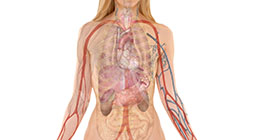Inflammation, blood sugar imbalance, some viruses, and an overactive immune function are understood to play a role in Alzheimer’s disease. Ten percent of seniors over 65 have Alzheimer’s, and 50 percent of those over 85 are afflicted. With the enormous group of boomers hitting the age at the highest risk, the number affected with Alzheimer’s is expected to increase dramatically.
New evidence that the ticking time bomb in our brains is linked to the immune system suggests that an overactive immune system may be destroying neurons (neurons transmit and receive signals in the brain).
Inflammation in the brain caused by the immune system is now thought to be a significant contributor to Alzheimer’s disease. Our brains contain immune cells called microglia cells, which act like macrophages (the big eater cells of the immune system). These brain microglia cells release inflammatory immune factors like IL-6 and IL-1. Experimental animal studies and clinical trials in humans have shown that these inflammatory immune factors promote the destruction of neurons in Alzheimer’s disease brains. In certain animal studies, when IL-1 and IL-6 were blocked, the destruction of neurons was halted.
Let’s take it to the next step. Researchers worldwide have shown evidence that anti-inflammatory agents could be important in preventing Alzheimer’s. If inflammation of the brain is one of the factors that induce the destruction of neurons in the brain of someone with Alzheimer’s, then anti-inflammatory agents that cross the blood/brain barrier could halt the release of these damaging immune factors and reduce our risk of developing Alzheimer’s or halt the progression of the disease.
In both low and high doses, the curry spice curcumin reduced the inflammatory immune factors secreted by microglia cells, showing great promise for preventing Alzheimer’s. The American Medical Association suggests vitamins E, C, beta carotene and a multivitamin with minerals may help protect people against Alzheimer’s disease, postponing cognitive and memory decline.
Vitamin E and vitamin C are powerful anti-inflammatory nutrients inhibiting IL-6 and IL-1, so it makes sense that they would protect our brains from injury or immune system assault.
Many nutrients blunt the action of interleukin-1 and interleukin-6; although they have not been studied directly for their use in Alzheimer’s disease, they should also be considered excellent Alzheimer’s prevention nutrients.
These include Vitamin D3, Moducare™, and omega-3 fatty acids. Do not wait another day to start your Alzheimer’s protection program. Include these nutrients in your daily regimen.
And don’t forget to eat curry often.
References:
- Basu, A., et al. “The type 1 interleukin-1 receptor is essential for efficient activation of microglia and the induction of multiple proinflammatory mediators in response to brain injury.” Journal Neurosci (July 2002). Vol. 15:22(14) pp. 6071 82.
- Lim, G. P., Chu, T., et al. “The curry spice curcumin reduces oxidative damage and amyloid pathology in an Alzheimer transgenic mouse.” Journal Neurosci (Nov. 2001). Vol. 1:21(21) pp. 8370-7.
- Eikelenboom, P., Hoogendijk, W. J., et al. “Immunological mechanisms and the spectrum of psychiatric syndromes in Alzheimer’s disease.” Journal Psychiatr Res (Sept/Oct 2002). Vol. 36(5): pp. 269-80.
- Lee, Y. B., Nagai, A., Kim, S. U. “Cytokines, chemokines and cytokine receptors in human microglia.” Journal Neurosci Res (July 2002). Vol. 1:69(1) pp. 94-103.










